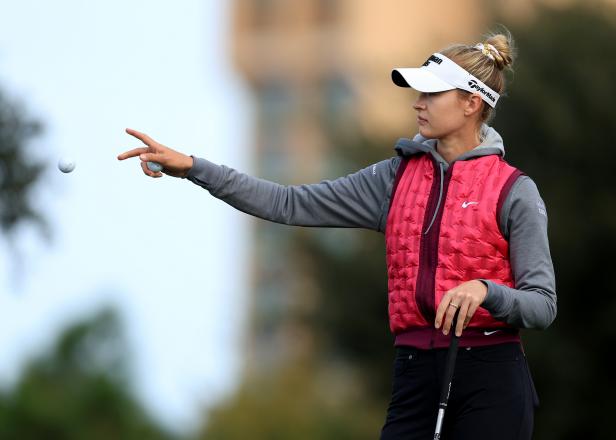Walk through a sporting goods store or a pro shop and you’ll likely find an array of “women’s” golf balls. Do these golf balls actually help women perform better on the golf course than balls not branded for women? Not necessarily. The gendering of golf balls is mostly marketing.
“Women’s” golf balls are generally lower compression – that’ll make the ball feel softer coming off the face. Most also have a Surlyn cover. Two-piece balls – whether branded for women or not – are a more cost-effective option than the three-piece, urethane cover balls (which is what you’ll find played on tour, like these options). Better players appreciate the workability of the urethane cover to allow them to hit advanced shots around the green. Good players, male or female, should most likely play these types of golf balls.
But if you’re just starting your golf journey, our equipment editors recommend going for the cheaper, two-piece designs. And if you’re intrigued by the women’s golf ball section and want to try those options, here are five our equipment editors recommend.
As you improve, move away from the women’s golf ball section and try a three-piece ball. If you can spin it more and see a difference in the shots you’re able to hit around the greens, stay in that three-piece category. Our Senior Equipment Editor, Mike Stachura, says to look at these balls when you enter the three-piece category: Bridgestone Tour B RXS, Callaway Chrome Soft, Srixon Q-Star Tour, TaylorMade Tour Response, Titleist Tour Speed, Wilson Triad.
But if you’re not ready for a three-piece ball, don’t hesitate to go back to a two-piece.
“If you can’t tell the difference ever, then definitely buy the cheaper one,” Eric Loper, Director of Product and Brand Management for Golf Ball at Callaway, says. “It becomes a decision around the frequency of how often you experience the benefit [of the higher-priced, multilayer urethane cover ball]. If it’s just not enough, buy the cheaper one.”

